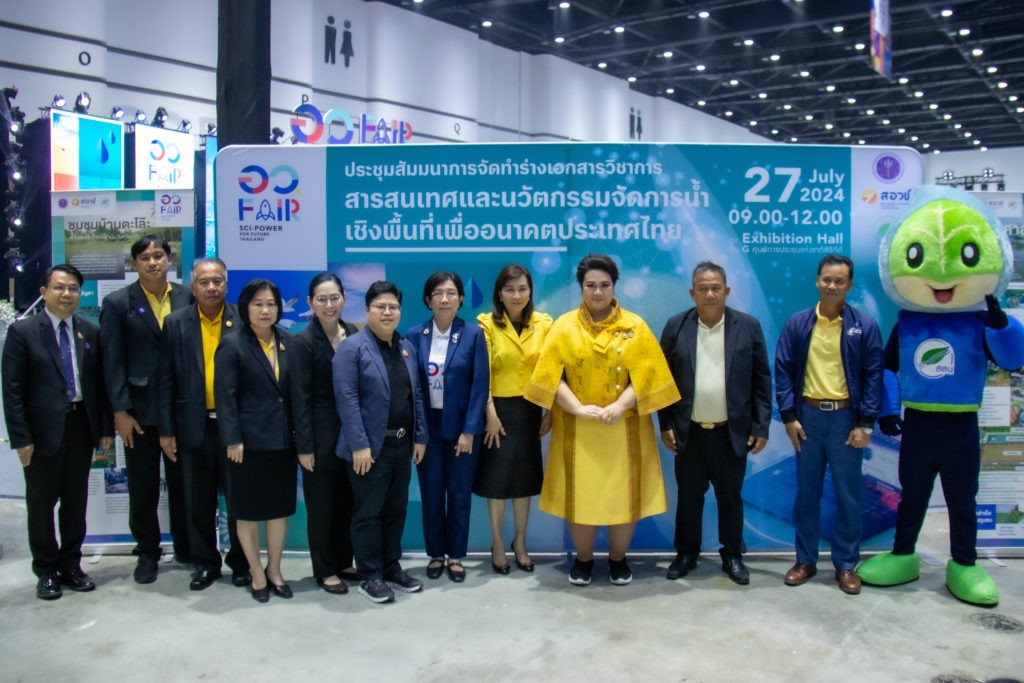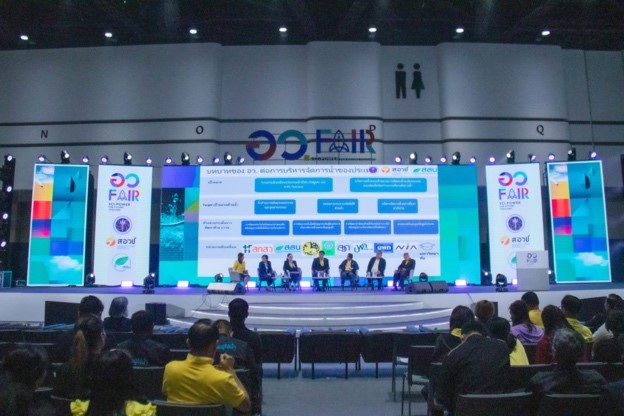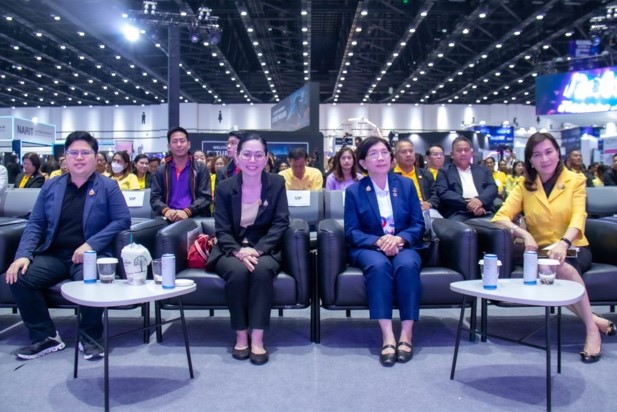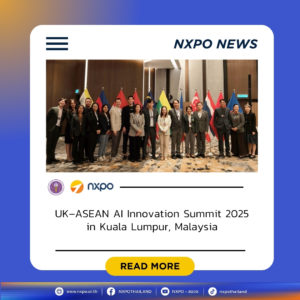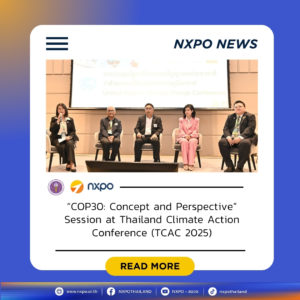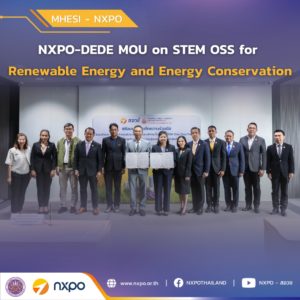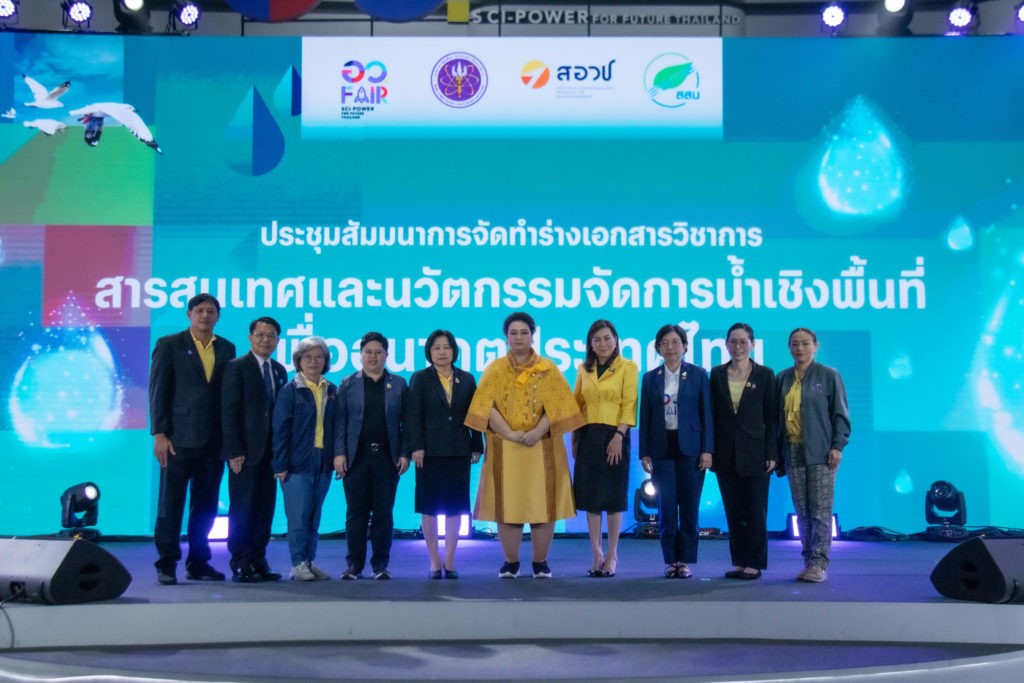
NXPO, in collaboration with the Hydro – Informatics Institute (Public Organization) or HII, organized a seminar on 27 July 2024, aimed at developing the “Hydro-informatics for Future Thailand” policy paper. This event was part of the Sci Power for Future Thailand Fair held at the Queen Sirikit National Convention Center in Bangkok and was inaugurated by MHESI Minister Ms. Supamas Isarabhakdi.
Moderated by HII Director Dr. Royboon Rassamethes, the seminar featured panelists from relevant organizations, including Assoc. Prof. Dr. Patamawadee Pochanukul, Director of Thailand Science Research and Innovation (TSRI); Dr. Siriporn Pittayasophon, Senior Strategist and Acting President of NXPO; and network representatives from the Northern, Northeastern, Central and Southern Thailand.
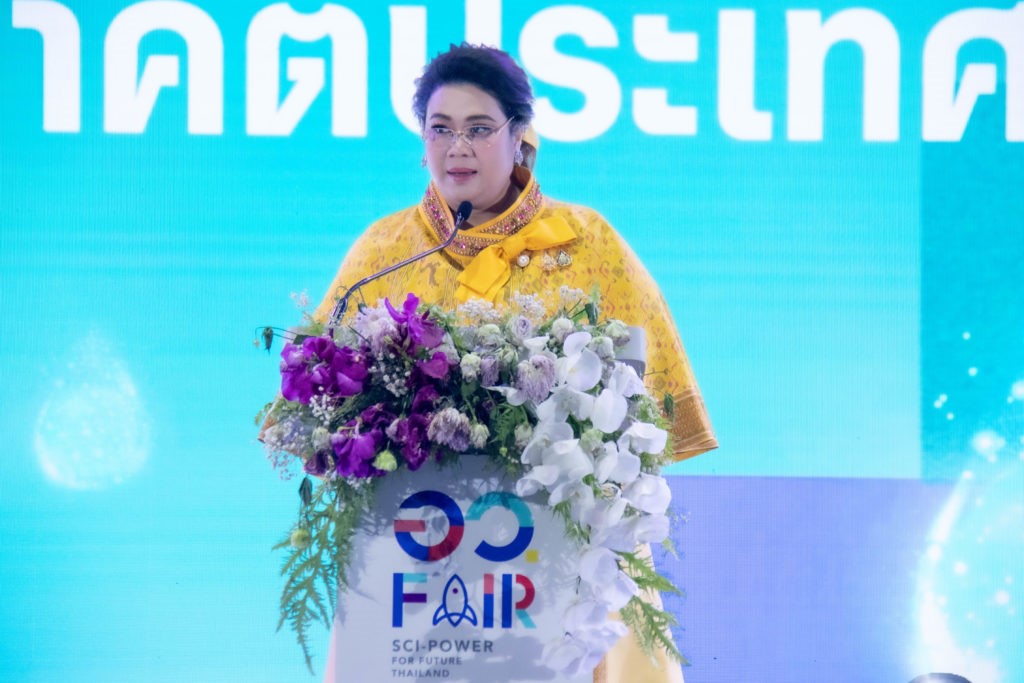
In her opening speech, Minister Supamas highlighted the importance of water for economic development and national security. Water resource management is a significant challenge against the backdrop of climate change, escalating natural disasters, and intensified international trade measures. This seminar aims to raise awareness and gather input from relevant sectors to prepare a “Hydro-informatics for Future Thailand” policy paper, which will be developed into a white paper.
“This policy paper will provide a framework for promoting the use of innovation and information technology in water management, encompassing human resource development and research and development. The approach will strengthen water management at a community level, reinforcing water security at the provincial, regional, and national levels,” said Minister Supamas. Minister Supamas emphasized MHESI’s commitment to supporting research and development and fostering collaboration among academia, industry, and government to develop applicable technologies and innovations, transforming policy into action and strengthening human resource development. MHESI has supported various initiatives and international cooperation on water resource management, including flood and drought forecasting and warning systems, the application of satellite imagery geoinformatics in water management, and the development of an easily accessible application for water monitoring. This seminar provided an opportunity to set the direction for the development and application of technology in water resource management, based on Thailand’s context.
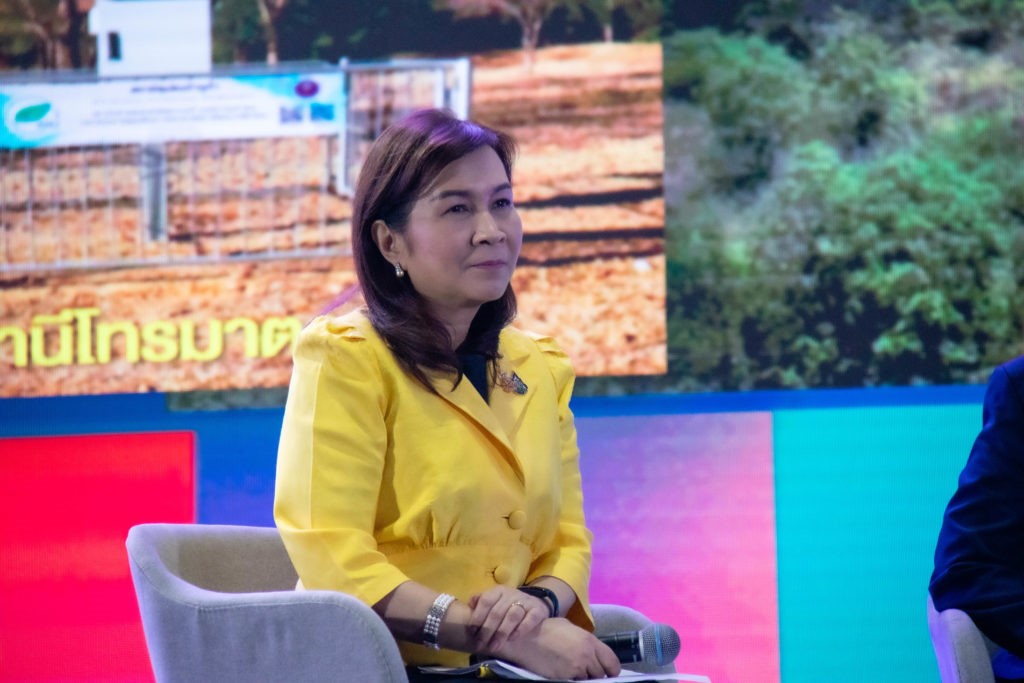
Dr. Royboon Rassamethes presented a community water management model inspired by the royal initiative. The model consists of five components: 1. upstream forest areas, 2. small and medium-sized reservoirs, 3. flood and drought plains, 4. downstream ecological balance areas, and 5. community-based economy.
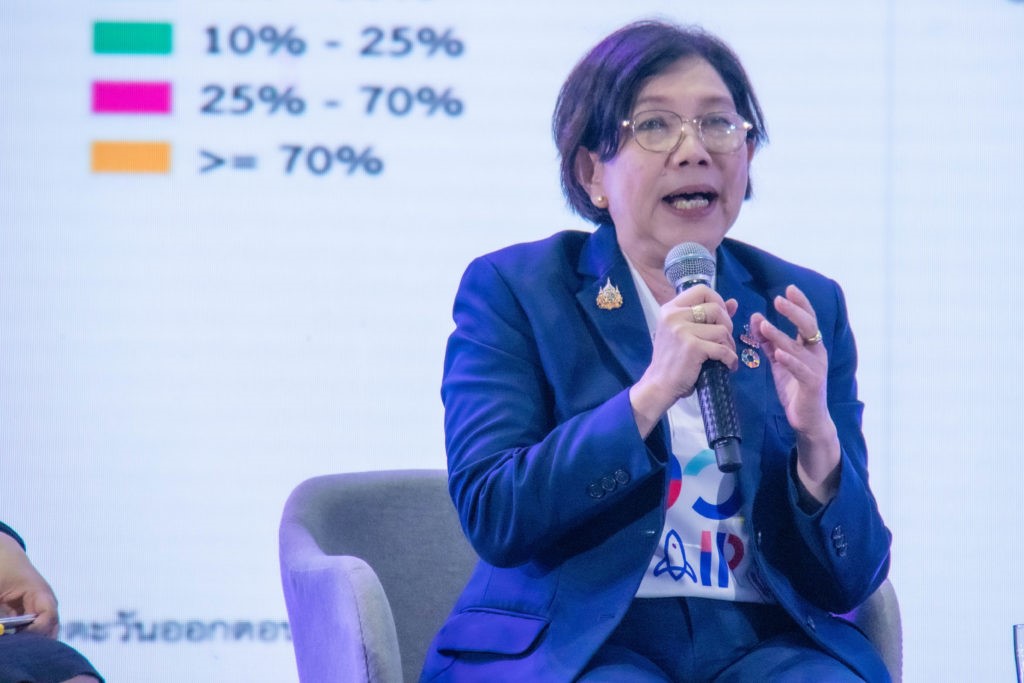
Dr. Patamawadee Pochanukul stated that as the agency responsible for policy implementation and budget allocation, TSRI advocates for fair and equitable benefit sharing in water management and collaboration among various agencies to achieve water security. Through this seminar and related activities, effective systems will be designed to enhance water use efficiency and generate benefits in agriculture, manufacturing and the service industry.
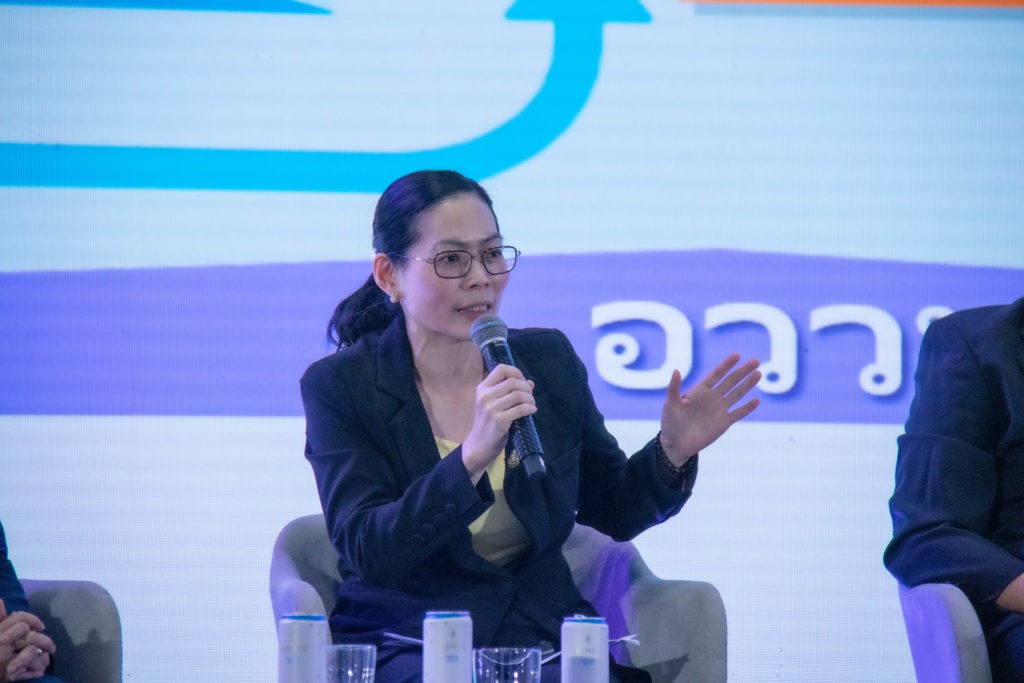
Dr. Siriporn Pittayasophon remarked that NXPO’s role is to leverage the potential of higher education, science, research and innovation in water resource management. Emphasis is placed on strengthening human capital to support water management at the community level. Dr. Siriporn further outlined mechanisms and agencies in the higher education and science ecosystem that drive this endeavor. These include the National Higher Education, Science, Research and Innovation Policy Council (Policy Council) chaired by the Prime Minister, 174 universities across the country, and nine funding agencies. These organizations set to work together and collaborate with external agencies and local organizations to achieve results. HII has established Thaiwater, a website and application, to provide knowledge on water management and water monitoring. The next step will involve the development of a community water management plan using the BCG model and local wisdom. This plan will serve as a model for national expansion, fostering collaboration between local people and local government agencies.
